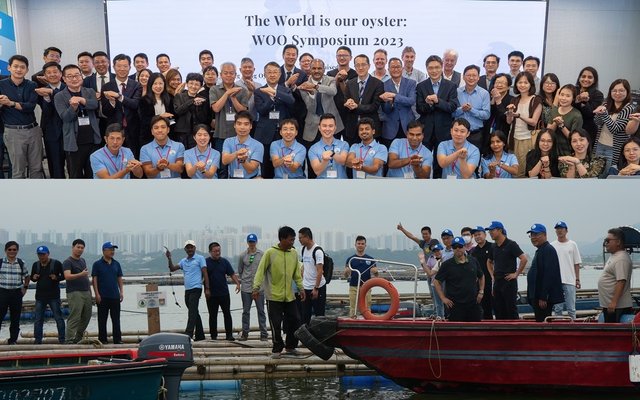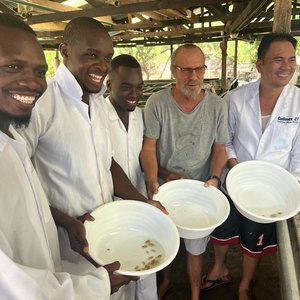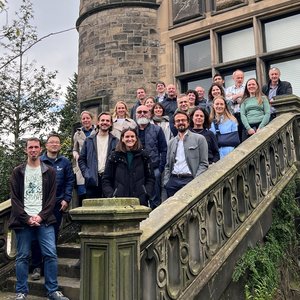The Hong Kong Oyster Hatchery and Innovation Research Unit (HKO-HIRU) at the University of Hong Kong (HKU) hosted The World is Our Oyster (WOO) Symposium 2023 from October 27-29, 2023. During the event, the Oyster Aquaculture Alliance for One Health (OAA) was officially established.
The event brought together a diverse group of over 50 stakeholders, including scientists, policymakers, government officials, oyster growers, industrial partners, and research students, sharing their groundbreaking research findings and fostering discussions on the future of One Health oyster aquaculture in Hong Kong.
A call for modernizing oyster aquaculture and knowledge exchange
Farming Hong Kong (HK) oyster species in southern China contributes to a quarter of global edible oyster production. This sector faces unprecedented challenges due to reclamation, overcrowding and climate change. These human impacts not only directly deteriorate oyster food safety and security but also seriously affect wild seed production. The few wild seeds that are collected often suffer from mass mortality during the harvesting period in winter, and once these seeds are planted or used, their performance is often unpredictable. Thus, sustainable aquaculture in the region now heavily depends on hatchery-produced seeds from stress-tolerant and disease-resilient populations, especially their triploid version; and on how quickly we adapt the one health approach in aquaculture.
As part of the effort, the HKSAR government has funded HKU via the Sustainable Fisheries Development Fund (SFDF) to establish a research-based hatchery HKO-HIRU, for developing novel technology to modernize the sector with knowledge exchange. The project has developed impactful technologies in collaboration with growers in South China and Lee Kum Kee Co. Ltd.
Thriving oyster farming industry
The hatchery at HKU has successfully produced and delivered over 5,000 strings of seeds to the local oyster growers in Lau Fau Shan (LFS). The hatchery has also achieved a milestone by producing its first batch of triploid oyster seeds this season. The performance of these triploid seeds is currently being monitored.
Local production of triploid oyster seeds in Hong Kong has the potential to enhance local oyster aquaculture. Other than this, the hatchery has also completed the first trial batch of single oyster spat production using in-house upwelling and downwelling systems in collaboration with the Department of Architecture at HKU. The hatchery has also co-developed innovative material with HKU’s Civil Engineering Department to improve oyster spat recruitment. Additionally, the research unit is currently working on the development of a Single Nucleotide Polymorphism (SNP) chip for broodstock management at the hatchery.
Thiyagarajan Vengatesen from HKU School of Biological Sciences and the Swire Institute of Marine Science, who is also the director of HKO-HIRU and the organizer of the WOO 2023 Symposium, expressed his satisfaction with the outcome of this meeting. “The meeting has demonstrated the breeding technologies that have been developed in the HKO-HIRU to various stakeholders, identifying ways through which those technologies could be integrated with national efforts to develop sustainable oyster aquaculture for One Health with a global perspective and finalizing the objectives and deliverables of the just launched Oyster Aquaculture Alliance for One Health.”













